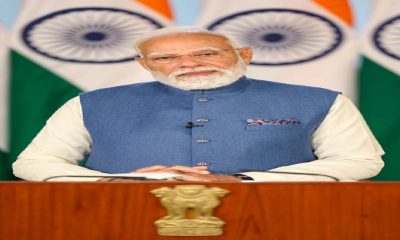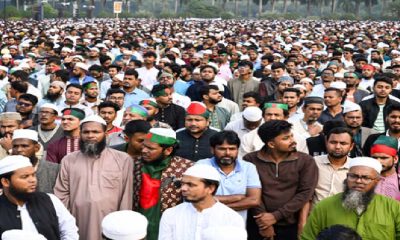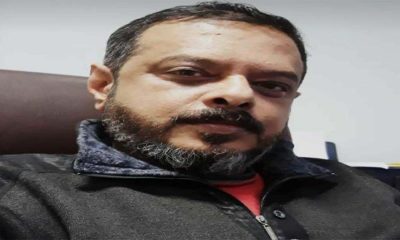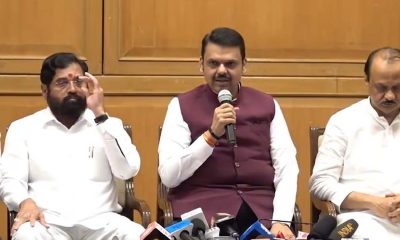National News
Today is important day for Delhi’s development: PM Modi
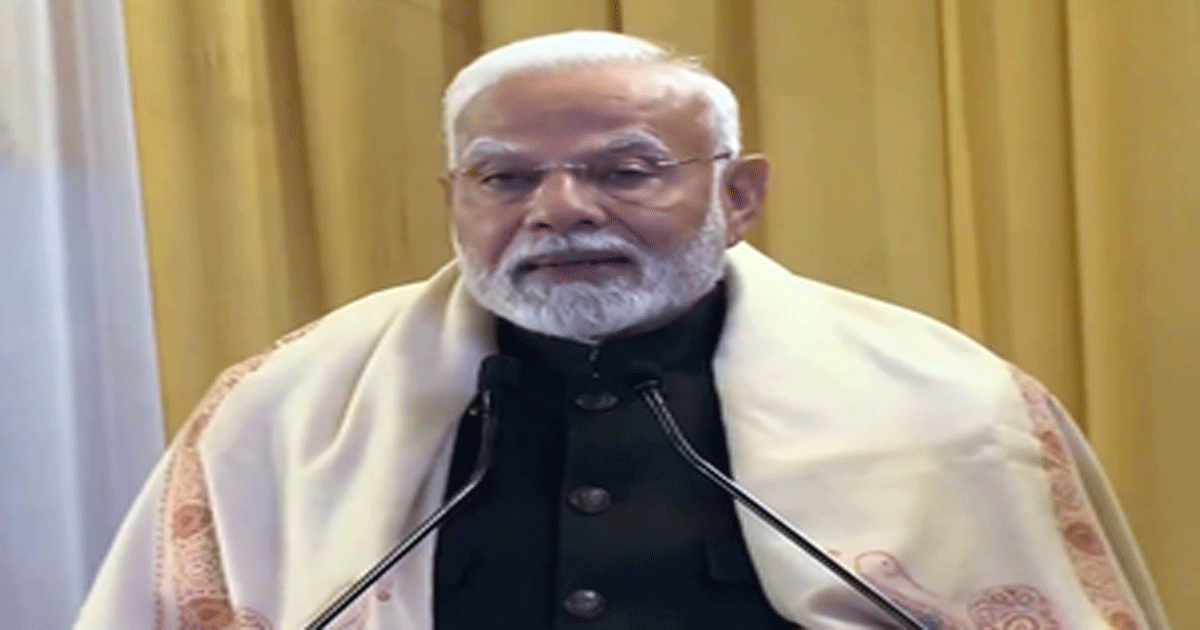
New Delhi, Jan 3: Prime Minister Narendra Modi will inaugurate a slew of development measures, including 1,675 flats for the residents of JJ clusters and two urban redevelopment projects in the national capital on Friday.
Taking to his X handle, PM Modi said this was an important day for Delhi’s development.
“Today is an important day for Delhi’s development. At a programme in Ashok Vihar, will be inaugurating and laying the foundation stones for a wide range of development works which will boost ‘Ease of Living’ for the people of Delhi,” he said.
PM Modi said these development activities will nurture future generations. “These endeavours reflect our unwavering commitment to nurturing future generations by empowering them with knowledge, innovation and opportunities in an environment that inspires growth and learning.”
He further said, “The projects include a cutting-edge academic block at the Eastern Campus in Surajmal Vihar, East Delhi, and another at the Western Campus in Dwarka. Additionally, the foundation will be laid for the Veer Savarkar College in Roshanpura, Najafgarh, designed to embody excellence in education with state-of-the-art facilities.”
According to a government press release, these steps were being taken in line with the PM’s commitment to ‘Housing for All’.
Prime Minister Modi will visit newly constructed flats for the dwellers of Jhuggi Jhopri (JJ) clusters under the In-Situ Slum Rehabilitation Project at Swabhiman Apartments, Ashok Vihar, Delhi, at around 12:10 p.m. Thereafter at around 12:45 p.m., he will inaugurate and lay the foundation stone of multiple development projects in Delhi.
The Prime Minister will inaugurate the 1,675 newly constructed flats for the dwellers of JJ clusters and also hand over keys to eligible beneficiaries at Swabhiman Apartments in Ashok Vihar.
The inauguration of newly constructed flats will mark the completion of the second successful In-Situ Slum Rehabilitation Project by the Delhi Development Authority (DDA). The objective of the project is to provide the residents of the JJ clusters in Delhi with a better and healthier living environment equipped with proper amenities and facilities.
For every Rs 25 lakh spent on the construction of a flat by the government, eligible beneficiaries pay less than 7 per cent of the total amount, comprising Rs 1.42 lakh as a nominal contribution and Rs 30,000 for five years of maintenance.
PM Modi will also inaugurate two urban redevelopment projects — the World Trade Centre (WTC) at Nauroji Nagar and the General Pool Residential Accommodation (GPRA) Type-II Quarters at Sarojini Nagar.
The World Trade Centre at Nauroji Nagar has transformed the area by replacing over 600 dilapidated quarters with state-of-the-art commercial towers, offering around 34 lakh square feet of premium commercial space with advanced amenities. The project incorporates green building practices, with provisions such as a zero-discharge concept, solar energy generation, and rainwater harvesting systems.
The GPRA Type-II Quarters at Sarojini Nagar include 28 towers that house over 2,500 residential units, offering modern amenities and efficient use of space. The project’s design incorporates rainwater harvesting systems, sewage and water treatment plants, and solar-powered waste compactors encouraging eco-conscious living.
The Prime Minister will also inaugurate CBSE’s Integrated Office Complex at Dwarka, Delhi built at around Rs 300 crore. It includes offices, an auditorium, an advanced data centre, comprehensive water management system among others.
The eco-friendly building has been constructed to high environmental standards and was designed as per Platinum Rating standards of the Indian Green Building Council (IGBC).
PM Modi will lay the foundation stone of three new projects at Delhi University worth over Rs 600 crore. It includes the Eastern Campus at Surajmal Vihar in East Delhi and the Western Campus at Dwarka. It also includes building Veer Savarkar College at Roshanpura, Najafgarh, having state-of-the-art education facilities.
National News
Mumbai: BMC-Run KEM Hospital Commissions Ultra-Modern Modular OTs For Heart Transplants And Complex Surgeries
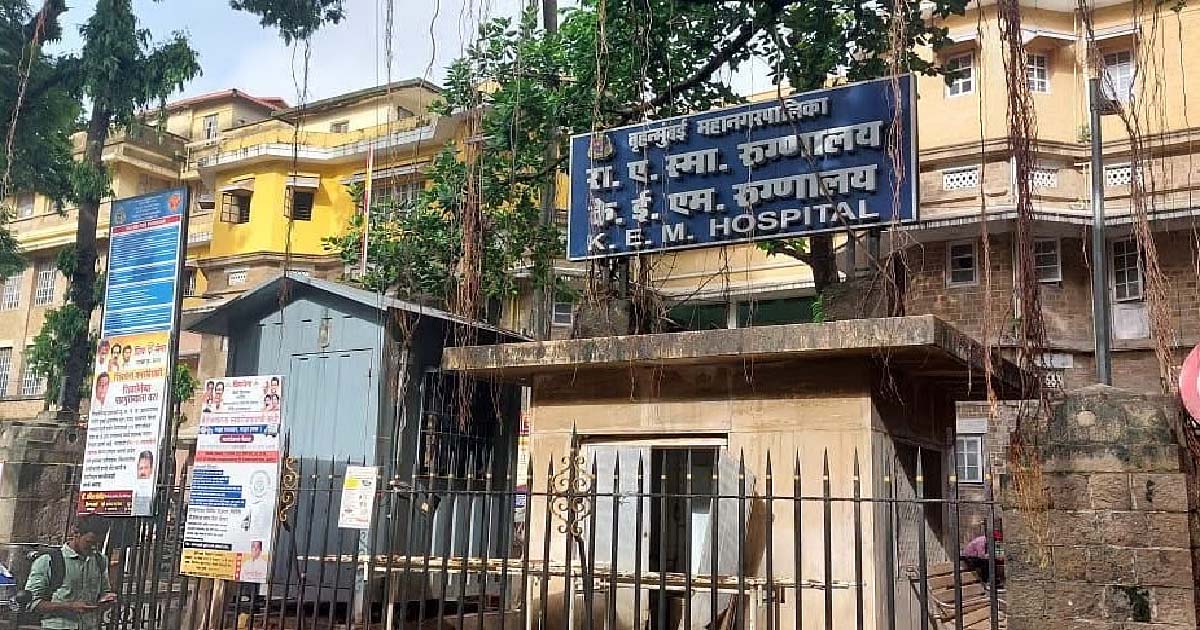
Mumbai, Dec 26: Mumbai’s BMC-run KEM Hospital has strengthened its advanced healthcare infrastructure with the commissioning of ultra-modern steel modular operation theatres (OTs) designed for heart transplants and other complex surgeries. Following the completion of sterilisation protocols, cardiac surgeries have already commenced in the new facility.
The newly installed modular OTs feature steel walls, ceilings, frames and panels, making them resistant to dust, moisture and water. This design significantly improves cleanliness and simplifies sterilisation, thereby reducing the risk of post-operative infections.
“Equipped with laminar airflow systems and HEPA filters, the operation theatres ensure a continuous supply of clean, controlled air by filtering out bacteria, viruses, dust particles and other airborne contaminants,” said hospital officials, adding that the advanced setup will support not only heart transplants but also other organ transplants, surgeries for congenital disorders and complex paediatric procedures.
To further enhance efficiency, especially in emergency organ transplant cases, the hospital has developed special internal connectivity and separate entry points. These allow donor organs to be transported directly to the designated operation theatre, minimising time delays and reducing associated risks.
With this upgrade, KEM Hospital is expected to play a more significant role in organ transplantation and advanced surgical care in Mumbai and across Maharashtra.
Business
Keralites gulped liquor worth over Rs 332 crore during Christmas

Thiruvananthapuram, Dec 26: The Kerala State Beverages Corporation (BEVCO) recorded a sharp surge in liquor sales during the Christmas week, with revenues touching a record Rs 332.62 crore, according to official figures.
The Christmas week sales are calculated for the four days from December 22 to December 25, and officials said this year witnessed a significant jump compared to previous years.
Data shows a 19 per cent increase in sales over the corresponding period last year, underlining a strong festive demand.
The sharpest spike was recorded on Christmas Eve, when liquor sales alone amounted to Rs 114.45 crore.
In comparison, sales on the same day last year stood at Rs 98.98 crore, indicating a substantial year-on-year rise.
Officials attributed the surge not only to the festive season but also to improved consumer facilities introduced by BEVCO over the past year.
The corporation had expanded its premium retail infrastructure, including the launch of new premium counters aimed at offering a better purchasing experience and a wider selection of high-end products.
Premium outlets were recently opened in key centres such as Thrissur and Kozhikode, and officials said these had a positive impact on overall sales figures.
The enhanced facilities helped reduce crowding at regular outlets and encouraged higher-value purchases, contributing to the increase in revenue.
The Corporation has traditionally seen a spike in sales during festival periods such as Onam and Christmas, but this year’s figures mark one of the highest Christmas week turnovers recorded by the state-run corporation.
The rise in liquor sales is expected to provide a significant boost to the State exchequer, as the corporation is a major contributor to Kerala’s revenue through taxes and duties.
Liquor is sold through state-run 325 retail outlets.
Studies have shown that around 10 per cent of the 3.30 crore Kerala population are tipplers, including around three lakh women.
In 2024–25, Kerala’s liquor sales rose to Rs 19,730.66 crore, up from Rs 19,069.27 crore in 2023–24, marking an annual growth of 3.5 per cent.
Business
Govt drive returns Rs 2,000 crore unclaimed savings to rightful owners

New Delhi, Dec 26: The government has succeeded in returning to the rightful owners a total amount of nearly Rs 2,000 crore that was stuck as “unclaimed savings” across banks, insurance, mutual funds, dividends, shares, and retirement benefits held within the regulated financial system, according to an official statement issued on Friday.
The funds have been restored through the Centre’s “Your Money, Your Right” nationwide awareness and facilitation initiative, launched in October 2025 to help citizens identify and reclaim unclaimed financial assets. The initiative is being coordinated by the Finance Ministry’s Department of Financial Services, with financial sector regulators reaching across digital portals with district-level facilitation.
Across generations, Indian families have saved carefully through opening bank accounts, purchasing insurance policies, investing in mutual funds, earning dividends from shares, and setting aside money for retirement. These financial decisions are taken with a hope and responsibility, often to secure children’s education, support healthcare needs, and ensure dignity in old age.
Yet, over time, a significant portion of these hard-earned savings has remained unclaimed. The money has not vanished, nor has it been misused. It lies safely with regulated financial institutions, separated from its rightful owners due to a lack of awareness, outdated records, changes in residence, or missing documentation. In many cases, families are simply unaware that such assets exist.
The volume of unclaimed financial assets in India is significant and spans multiple segments of the formal financial system. Indicative estimates suggest that Indian banks together hold around Rs 78,000 crore in unclaimed deposits. Unclaimed insurance policy proceeds are estimated at nearly Rs 14,000 crore, while unclaimed amounts in mutual funds are about Rs 3,000 crore. In addition, unclaimed dividends account for around Rs 9,000 crore, according to official figures.
Together, these amounts underline the scale of unclaimed savings belonging to citizens that continue to remain unused, despite being securely held within the financial system.
Your Money, Your Right is a nationwide effort to reconnect citizens with these forgotten financial assets and ensure that money that belongs to individuals and families ultimately finds its way back to them.
These unclaimed financial assets arise when money held with financial institutions is not claimed by the account holder or their legal heirs for a prolonged period. Such assets include:
*Bank deposits such as savings accounts, current accounts, fixed deposits, and recurring deposits that have not been operated for ten years or more.
*Insurance policy proceeds that remain unpaid beyond the due date
*Mutual fund redemption proceeds or dividends that could not be credited due to reasons such as a change in bank account, bank account closure, incomplete bank account in records, etc.
*Dividends and shares that remain unclaimed and are transferred to statutory authorities
*Pension and retirement benefits that are not claimed within the normal course
In most cases, assets may become unclaimed because of routine life events such as migration for work, changes in contact details, closure of old bank accounts, or lack of information among family members and legal heirs.
The Government is coordinating with the Reserve Bank of India (RBI), the Insurance Regulatory and Development Authority of India (IRDAI), the Securities and Exchange Board of India (SEBI), the Investor Education and Protection Fund Authority (IEPFA), and the Pension Fund Regulatory and Development Authority (PFRDA) to help citizens identify, access and reclaim financial assets that legally belong to them, using simple processes and transparent systems.
-

 Crime3 years ago
Crime3 years agoClass 10 student jumps to death in Jaipur
-

 Maharashtra1 year ago
Maharashtra1 year agoMumbai Local Train Update: Central Railway’s New Timetable Comes Into Effect; Check Full List Of Revised Timings & Stations
-

 Maharashtra1 year ago
Maharashtra1 year agoMumbai To Go Toll-Free Tonight! Maharashtra Govt Announces Complete Toll Waiver For Light Motor Vehicles At All 5 Entry Points Of City
-

 Maharashtra1 year ago
Maharashtra1 year agoFalse photo of Imtiaz Jaleel’s rally, exposing the fooling conspiracy
-

 National News1 year ago
National News1 year agoMinistry of Railways rolls out Special Drive 4.0 with focus on digitisation, cleanliness, inclusiveness and grievance redressal
-

 Maharashtra1 year ago
Maharashtra1 year agoMaharashtra Elections 2024: Mumbai Metro & BEST Services Extended Till Midnight On Voting Day
-

 National News1 year ago
National News1 year agoJ&K: 4 Jawans Killed, 28 Injured After Bus Carrying BSF Personnel For Poll Duty Falls Into Gorge In Budgam; Terrifying Visuals Surface
-

 Crime1 year ago
Crime1 year agoBaba Siddique Murder: Mumbai Police Unable To Get Lawrence Bishnoi Custody Due To Home Ministry Order, Says Report





